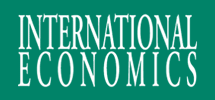| Countries restrict the export of natural resources to lower domestic prices, stimulate downstream industries, earn rents on international markets, or on environmental grounds. This paper provides empirical evidence of evasion of such export barriers. Using tools from the illicit trade literature, I show that exports of minerals, metals, or wood products are more likely to be missing from the exporter?s statistics if they face export barriers such as prohibitions or taxes. Furthermore, I show that this relationship is significantly higher in countries with high levels of corruption. The results have implications for the design of trade policies and environmental protection. |
Abstract
|
